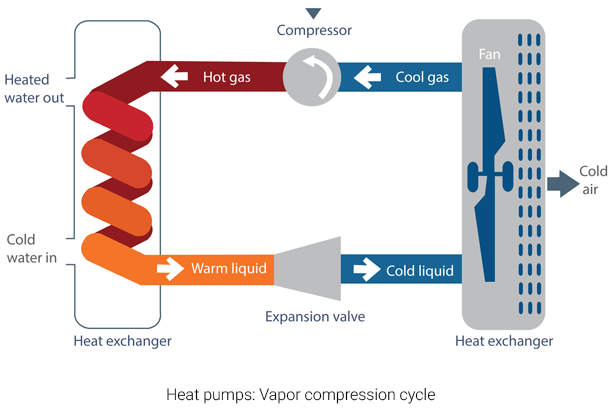In hot pursuit: Our super-saver heat pumps

An electric heater or diesel boiler is the most common mode of heating water on an industrial scale. But are these efficient?
The answer is no. In fact, these are almost 70% more energy-intensive than some of the greener alternatives we now have at our disposal.

How it works
A heat pump works on a reverse refrigeration cycle. It takes in low-grade heat from the air and transports it to the location where the heat is required. Heat pumps also generate cold air as a by-product.
The difference it made to our campuses
The hot water generated by the heat pumps is used in our food court kitchens for dishwashing, in gyms, and in the washers and driers of the laundromats in our Employee Care Centers (ECC).
Heat pumps have helped us phase out all diesel-powered heaters, thus cutting down emissions considerably.
The by-product cool air is used to make our kitchens as well as our laundry spaces cool and comfortable for the staff.
In one of our largest Employee Care Centers, we have reduced diesel use by 400 liters per day, which is equivalent to planting about 5 trees every day!
Green gains
Heat pumps are 3.5 times more efficient than electric heaters, and have helped us eliminate 4.4 MW of connected load across our campuses in India.

